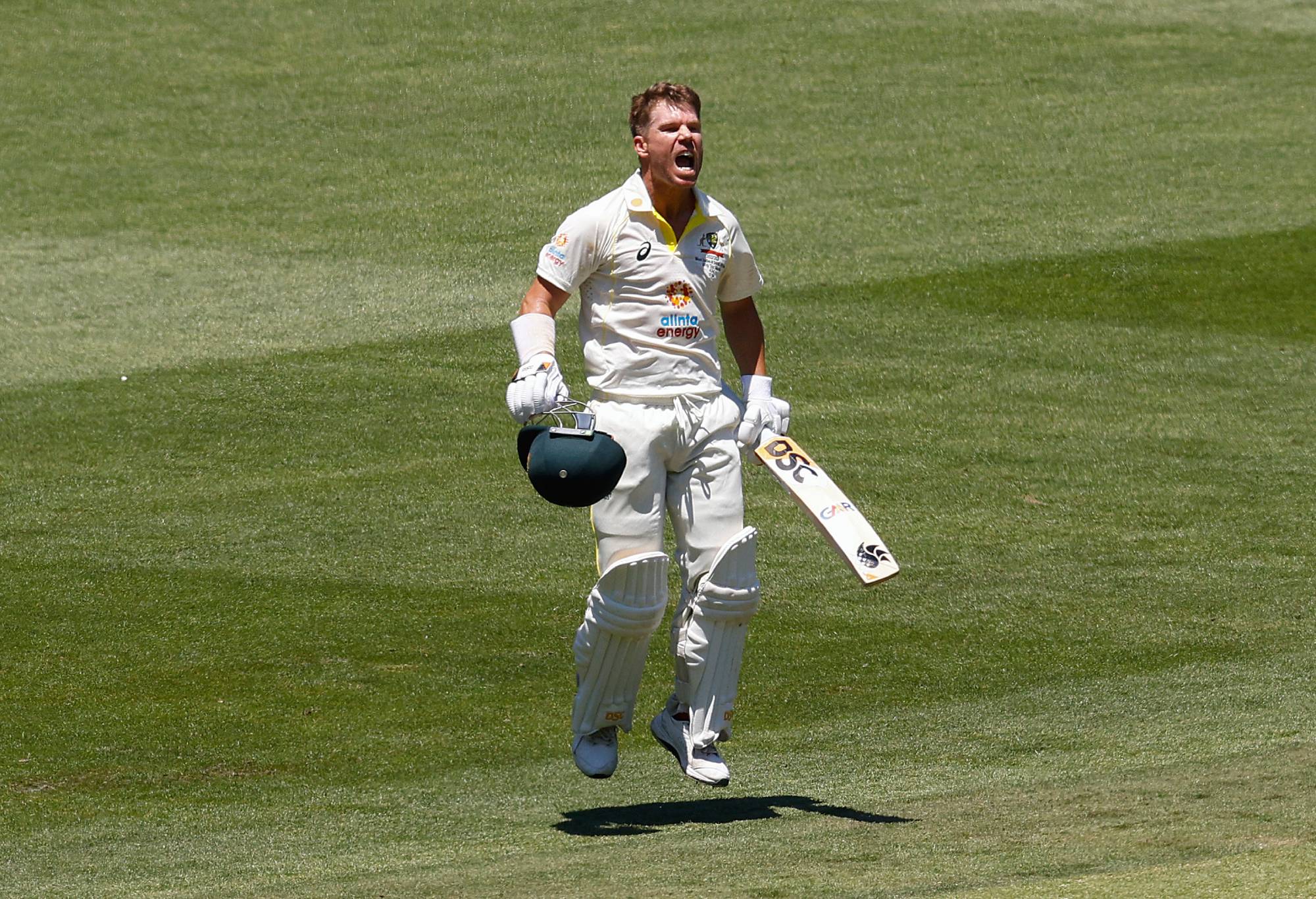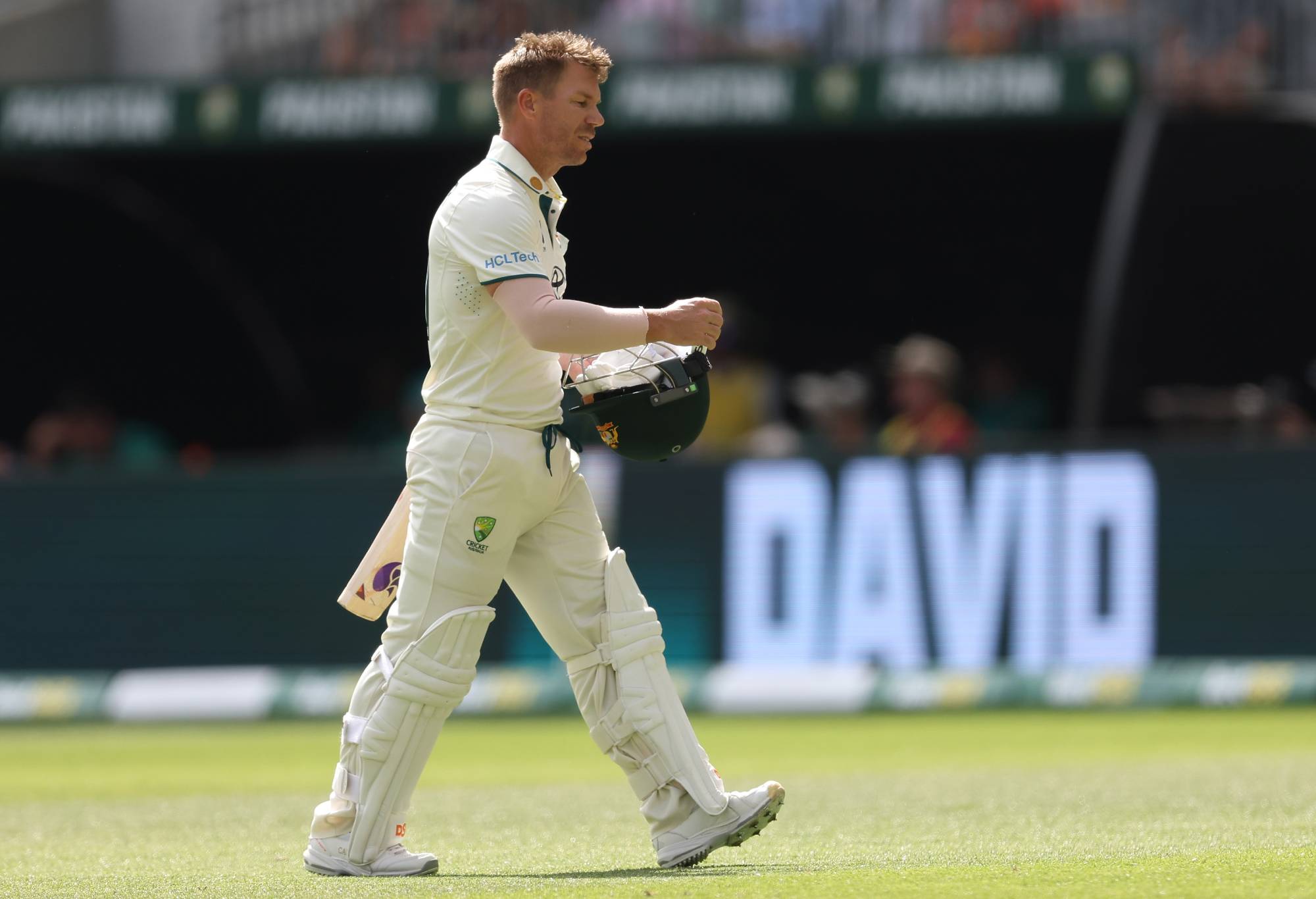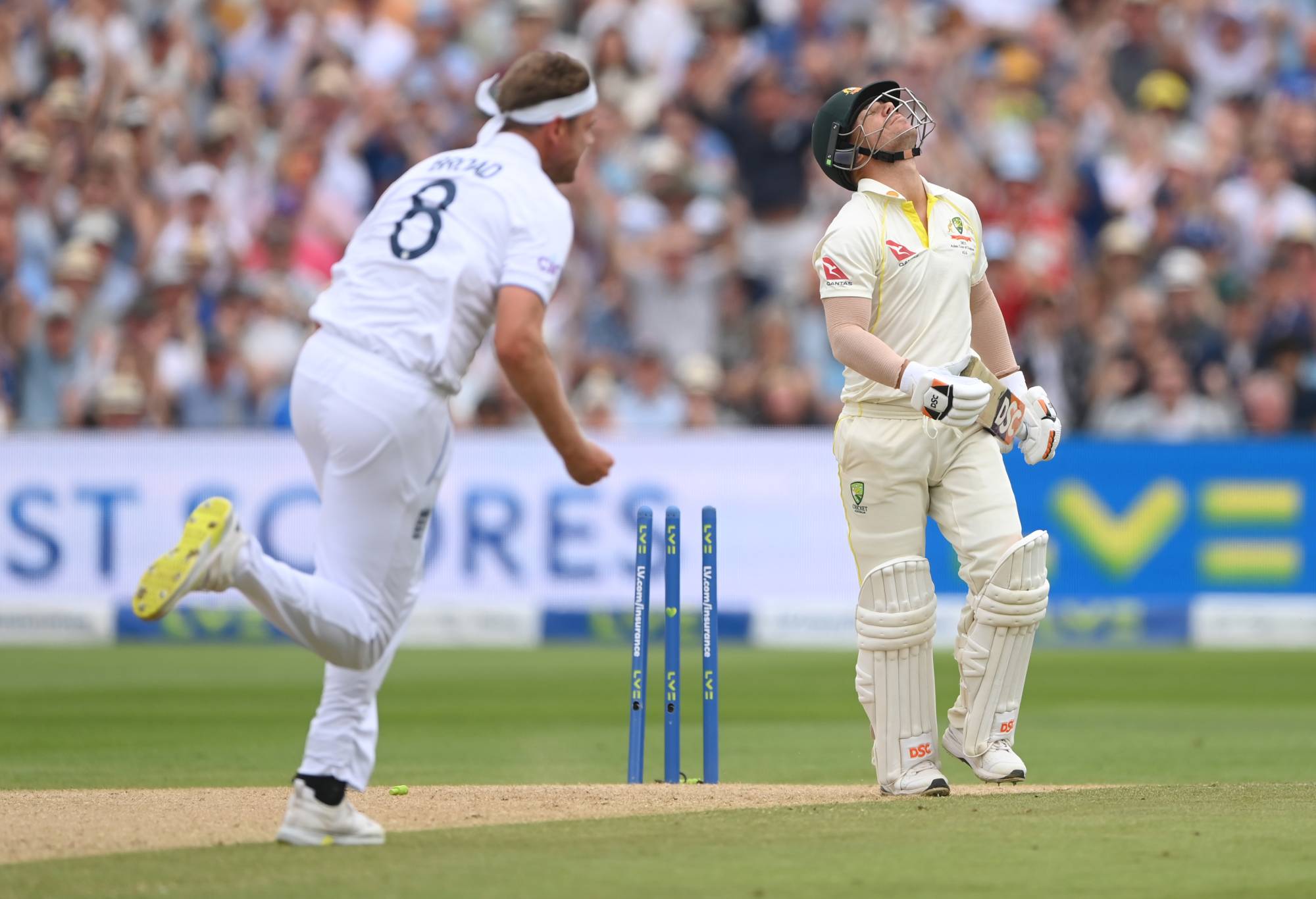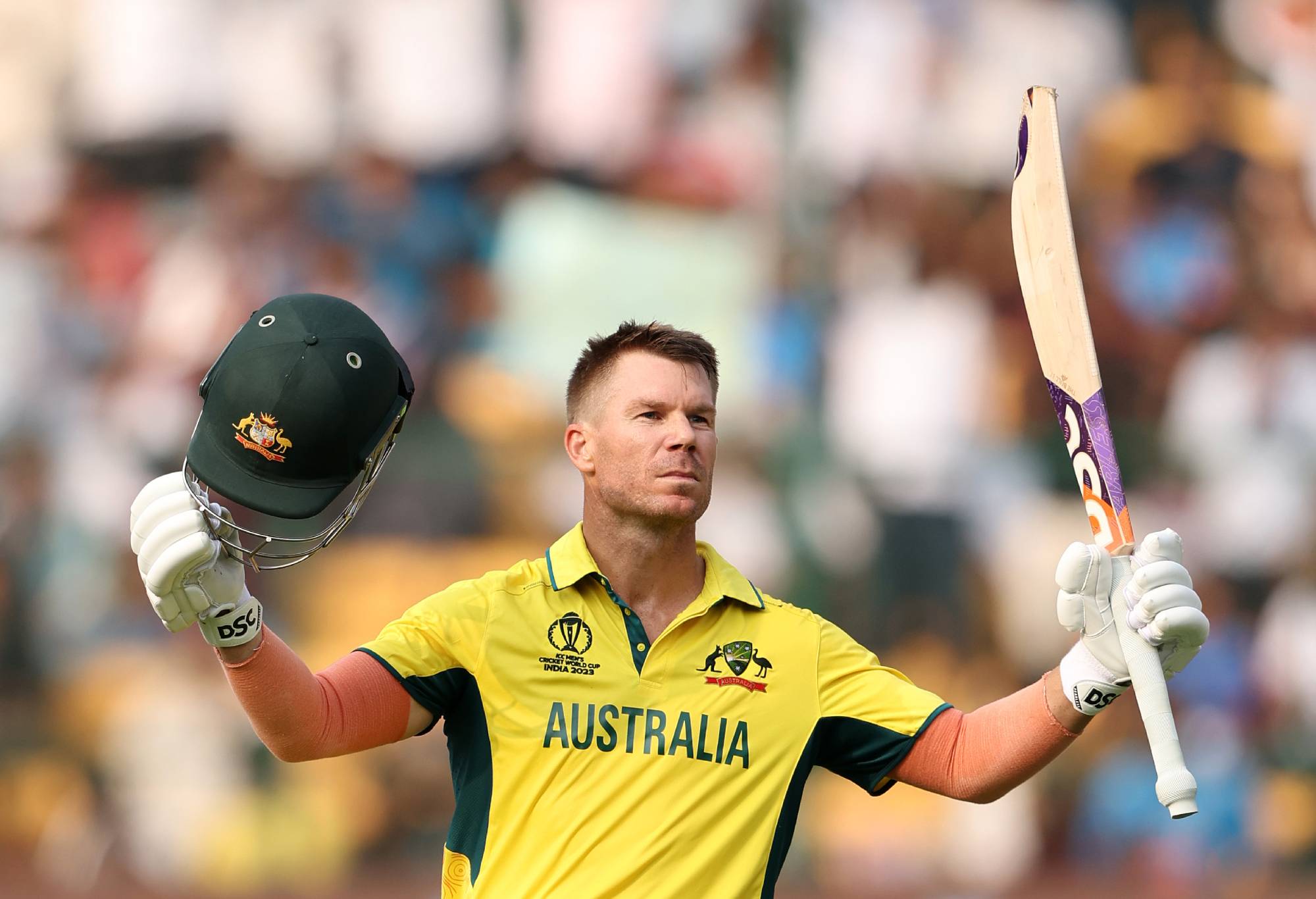No one has ever summed up David Warner, the cricketer and the human being, more accurately than Geoff Lemon in his account of the Sandpapergate scandal, Steve Smith’s Men:
“Warner is aggressive, impulsive and daft. He is thoughtful, curious and more intelligent than credited. He can be objectionable and wounding, then considerate and generous. He switches between these states according to slight shifts of the wind on internal seas, and can as easily invent a rationale to justify this afterwards as plot a logical course to arrive there in the first place.
The SCG against Pakistan won’t be the last time he walks onto a cricket field for Australia, but given the T20 World Cup will be hidden behind an Amazon Prime paywall and his stints for his country will now be dictated by the whims of franchise cricket, it’s the end of Warner as an omnipresent part of any line-up in any format.
If you’re reading this, you’ve probably already made your own judgement on how he’ll be remembered. He’s either the pocket rocket opener who burst into our lives so memorably in that far-off T20 match against South Africa some 15 years ago and has seldom stopped dazzling us since; or the unrepentant cheat who single-handedly sent Australian cricket into disarray against that same nation, and whose presence in the team until now is only due to his knowledge of the ample skeletons that still reside in that closet.
The truth is his legacy will be more complicated than the binary pros or cons. We probably won’t know exactly how he will sit in our cricket history for years and decades to come. Even then, it’s unlikely to be with the same fervour that we remember the likes of Steve Waugh, or Ricky Ponting, or his only peer for attracting controversy, Shane Warne.
Even players who achieved considerably less than he and whose talent pales in comparison to his – your Justin Langers, your Mark Taylors, your David Boons – still hold warm places in the hearts of nearly every Australian cricket fan; it’s doubtful Warner will ever receive the same treatment.
The truth is there is far more respect and adulation for the Bull than his critics will claim. He was warmly celebrated in Perth after reaching the century that granted him the Test farewell he desired; he received applause from all corners of the MCG after his second-innings failure in the Boxing Day Test, his final red-ball innings on that hallowed turf.
A home SCG crowd is unlikely to end that trend over the next five days; one suspects most of the harsh words against him will be restricted to the social media sphere, as indeed it mostly is.
All the same, it’s without doubt Warner is among the most unpopular Australian cricketers in living memory. It takes a lot for even a small percentage of our population to turn against our iconic sportsmen; it’s rarer still for a cricketer, and a star one at that, to generate as much scorn as he has in the last few years.

David Warner celebrates his double-century during his 100th Test, against South Africa in December 2022. (Photo by Daniel Pockett – CA/Cricket Australia via Getty Images)
Michael Clarke was booed one morning at the SCG during an Ashes pantsing; Mitchell Marsh had that now-infamous time at the MCG in 2018. The critics grumbled about Matthew Hayden, Ricky Ponting, Brad Haddin et.al when their output tapered off near the end, but the pulling of the pin immediately saw the public mood pivot towards appreciation and celebration.
That’s about as far as it goes in these parts; it’s certainly unheard of to have a former player – a teammate, no less! – rip into someone as brutally and personally as Mitchell Johnson did in his targeting of Warner earlier this summer… and have half the reaction be to come to his defence for a legitimate opinion.
The only one who comes close is Clarke, who copped it from Hayden and Andrew Symonds in particular post-retirement.
Warner, to be sure, has an abrasive personality, and aided and encouraged by Cricket Australia in their quest to return the mongrel to the Test team in the mid-2010s, became the archetypal ugly Australian of his age.
He was (and the was deserves its past tense here; Warner has cooled noticeably since Sandpapergate) boorish, aggressive, fiercely vocal and widely disliked by the opposition. By his own supporters, he was tolerated when the team was winning and he himself was making runs, but despised when they weren’t and he wasn’t.
But is it not a shade unfair to treat his legacy so differently to Matthew Hayden, the standard-bearer for chat in Steve Waugh’s all-conquering team and Warner’s immediate predecessor as a hard-hitting opener who sledged bowlers from the crease and chirped batters from the cordon? A man openly and widely despised among opposition teams – and even some in rival Australian states – who commemorated the first Test of future Proteas great Graeme Smith with a foul-mouthed spray before he’d even faced a ball?
Is the indelible stain on Warner from his role in Cape Town 2018 the only reason why one of these two, so similar in many respects, is held in esteem while the other will likely have his legacy permanently disputed?
Warner has also – and Clarke may be the only other Australian to ever have copped similar – had to endure another line of attack from his most infantile critics: through his family.

(Photo by Paul Kane/Getty Images)
Yes, Candice Warner is more prominent than most significant others of Test cricketers, but even so, the attacks on her for doing little more than *checks notes* stick up for her husband, doing her job as a TV panelist, has been disgraceful. Just as it was when South Africa, started by Quinton de Kock and then further flamed by the rumour mill and tacitly condoned if not outright supported by their cricket body, chose her as their target to seek revenge against their actual antagonist.
I’m not sure that side of the story is given the weighting it deserves when it comes to justifying, for good or for bad, Warner’s unquestionable wrongdoings. If you dish it out, you should expect to cop it – but you shouldn’t also expect to have everyone you love get shunted into the crossfire.
In any case, what is forgotten amongst all the off-field drama, scandal and controversy, is that Warner is a primary reason why Cricket Australia’s revenue sharing agreement, a cornerstone of the professional game in this country, remains to this day.
Were it not for the steadfast refusal of Warner, Steve Smith, Mitchell Starc and a select few others at the top of the game, who resisted whopping contracts for themselves to stick up for those at state level and ensure their continued financial stake in Australian cricket, the sport in this country would almost certainly look very different now.
For all the talk about Warner the cheat, Warner the bully, Warner the megalomaniac, Warner the little man’s champion is a far less common sobriquet, but one every bit as earned. It’s as much his defining achievement as a cricketer as the thousands of runs he made on the field.
The detractors don’t stop there, though – Warner’s critics point to his records on the field as reasons for derision as well.
He’s a home-track bully. He’s been carried in the last three years. His ODI records barely count, because in his World Cup knockout innings he’s never passed 50. T20I? Barely a sport.
It’s true the Warner of 2023, and 2022, and probably 2021 as well, doesn’t hold a candle to the Warner of yesteryear. He’s averaged under 31 since the start of the COVID-19 pandemic.
He has also averaged 32.87 on the road across 54 Tests – by that metric, he’s the fourth-worst Australian opener with at least 15 innings at the top of the order since the days of uncovered pitches in the early 20th century. (Shane Watson, Andrew Hilditch and Bruce Laird sit below him, for those playing at home).

(Photo by Stu Forster/Getty Images)
But to call Warner a washed-up has-been is to ignore his sensational, match-winning 164 against Pakistan just a fortnight ago, on a pitch far from lifeless. It’s to disregard his vital 66 against the moving ball on the first morning at Lord’s in July, the handy 36 at Edgbaston that ensured Australia’s chase got off to a great start, the final-innings 60 at The Oval to briefly make a miraculous victory look possible.
To deride Warner as a home-track hero ignores the twin tons in Cape Town in 2014 against a mighty bowling attack of Dale Steyn, Morne Morkel and Vernon Philander that secured Australia one of its greatest overseas wins. He averaged 90.5 in that series against the best pace attack of the generation, you know.
No, he never made a ton in England or India, forever a blot on his copybook: but he did make two tons against Bangladesh in 2017 on similarly spin-friendly pitches, the first in an upset loss that he very nearly willed into a win and the second ensuring a share of the series.
And he, more than anyone, even Smith, is the reason Australia have been so fiendishly difficult to beat at home throughout his career. He averages 58.11 in home conditions; but it’s as much about the speed at which he scores those runs that has made his wicket every bit as prized as his legendary number four.
He has scored a century in the first session of a Test, one of cricket’s rarest feats; he’s been front and centre in three Ashes thumpings, and will end his career as having never lost a Test at home to England.
The two summers he hasn’t been a lock at the top of the order have been Australia’s worst: his absence in 2018/19 opened the door for India to claim their first series victory down under, while in 2020/21, an injury suffered in a pre-series ODI threw the team into disarray to the extent Matthew Wade was asked to open to try and replicate his scoring speed. It didn’t work.
It’s the latter that will be as hard to replace as the runs he’s scored, and surely the main reason Cameron Green is being considered to replace him. It’s a fool’s venture: no opener in Australian cricket history has scored like Warner, and it’ll be a good while before anyone can again.
As for ODI and T20I cricket, he’s unquestionably in the pantheon of greats. No one has made more ODI runs for Australia at a higher average than Warner’s 45.30, while his strike rate of above 97 is only bettered by one player with even half his runs: Glenn Maxwell.
He’s won two World Cups – and a poor knockouts record belies how important his 29 against South Africa in the 2023 semi-final was to get the chase off to a bright start, nor his 45 against New Zealand in the 2015 final after the early loss of Aaron Finch. Or the fact he still has six World Cup centuries – equal, and from 15 fewer innings, than the great Sachin Tendulkar himself.

David Warner after scoring a century against Pakistan at the 2023 World Cup. (Photo by Robert Cianflone/Getty Images)
As for T20Is, only Maxwell even challenges him as Australia’s greatest ever.
Player of the Tournament in the triumphant 2021 campaign, he began by bombing sixes off Steyn 15 years ago and ended as a masterful threader of boundaries along the ground and the quickest runner between the wickets in world cricket. The team’s T20 World Cup campaign later this year relies on him as much as anyone.
So yes, Warner has shamed himself, and Australia, with his actions on the field, and with his role in the sandpaper scandal. But his key role in standing up to CA over revenue sharing saw him stick up for the little guy and ignore substantial rewards for caving in.
Yes, his record is patchy away from home. He also has three centuries in South Africa against Steyn in his pomp, and more significant contributions in England than his detractors would admit, even without that elusive ton.
He has been a loudmouth, a pain, a walking wicket to Stuart Broad, and a regular failure at times of greatest need. And it’s going to be next to impossible to fill the void he leaves behind anytime soon.
A mess of contradictions unto the end. David Warner – it’s complicated.
































































































